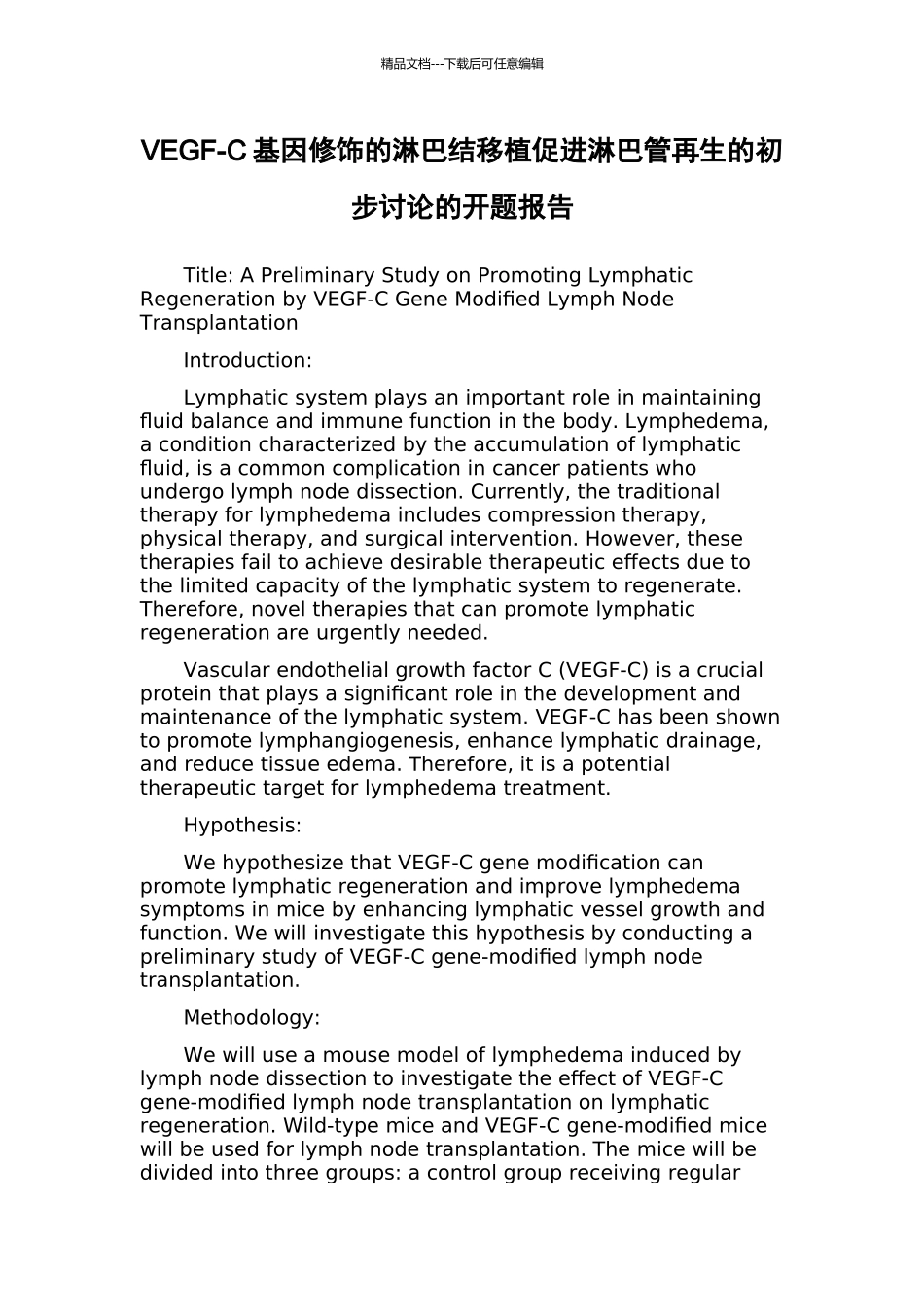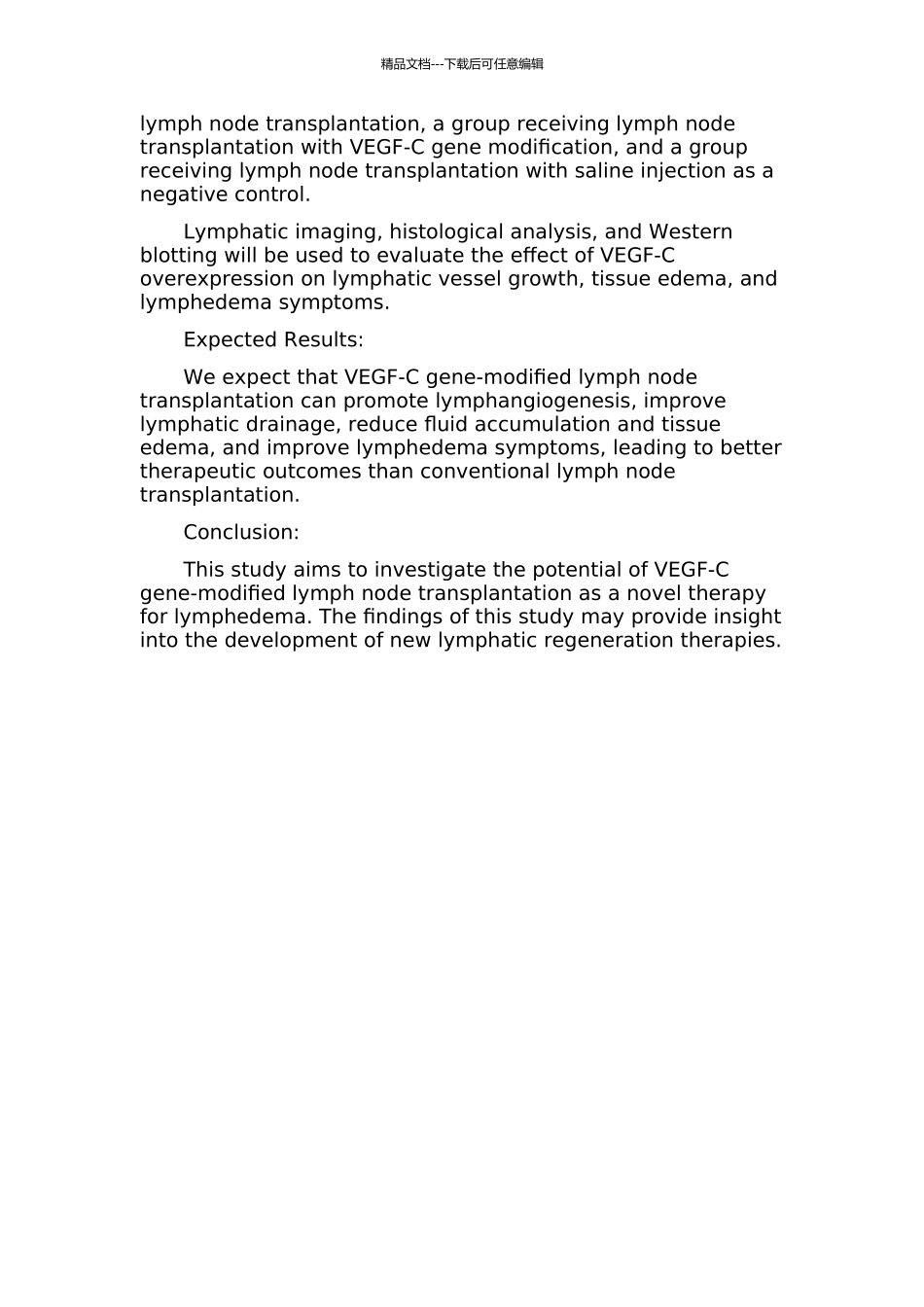精品文档---下载后可任意编辑VEGF-C 基因修饰的淋巴结移植促进淋巴管再生的初步讨论的开题报告Title: A Preliminary Study on Promoting Lymphatic Regeneration by VEGF-C Gene Modified Lymph Node TransplantationIntroduction:Lymphatic system plays an important role in maintaining fluid balance and immune function in the body. Lymphedema, a condition characterized by the accumulation of lymphatic fluid, is a common complication in cancer patients who undergo lymph node dissection. Currently, the traditional therapy for lymphedema includes compression therapy, physical therapy, and surgical intervention. However, these therapies fail to achieve desirable therapeutic effects due to the limited capacity of the lymphatic system to regenerate. Therefore, novel therapies that can promote lymphatic regeneration are urgently needed.Vascular endothelial growth factor C (VEGF-C) is a crucial protein that plays a significant role in the development and maintenance of the lymphatic system. VEGF-C has been shown to promote lymphangiogenesis, enhance lymphatic drainage, and reduce tissue edema. Therefore, it is a potential therapeutic target for lymphedema treatment.Hypothesis:We hypothesize that VEGF-C gene modification can promote lymphatic regeneration and improve lymphedema symptoms in mice by enhancing lymphatic vessel growth and function. We will investigate this hypothesis by conducting a preliminary study of VEGF-C gene-modified lymph node transplantation.Methodology:We will use a mouse model of lymphedema induced by lymph node dissection to investigate the effect of VEGF-C gene-modified lymph node transplantation on lymphatic regeneration. Wild-type mice and VEGF-C gene-modified mice will be used for lymph node transplantation. The mice will be divided into three groups: a control group receiving regular 精品文档---下载后可任意编辑lymph node transplantation, a group receiving lymph node transplantation with VEGF-C gene modification, and a group receiving lymph node transplantation with saline injection as a negative control.Lymphatic imaging, histological analysis, and Western blotting will be used to evaluate the effect of VEGF-C overexpression on lymphatic vessel growth, tissue edema, and lymphedema symptoms.Expected Results:We expect that VEGF-C gene-modified lymph node transplantation can promote lymphangiogenesis, improve lymphatic drainage, reduce fluid accumulation and tissue edema, and improve lymphedema symptoms, leading to better therapeutic outcomes than conventional lymph node transplantation.Conclusion:This study aims to investigate the potential of VEGF-C gene-modified lymph node transplantation as a novel therapy for lymphedema. The findings of this study may provide insight into the development of new lymphatic regeneration therapies.

